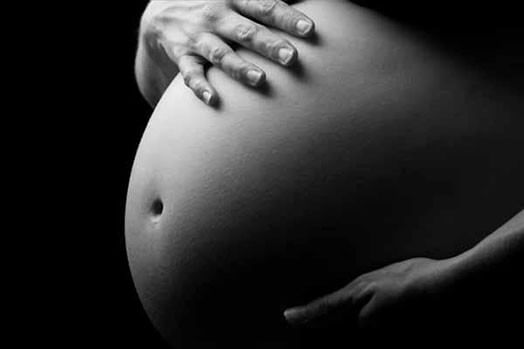Mothers who eat high-fat foods during their last trimester might be putting their babies at increased risk of obesity later in life, researchers are reporting based on a preliminary study using mice.
“Our study suggests that expecting mothers can have major impact on the long-term metabolic health of their children by properly controlling nutrition during this critical developmental period of the offspring,” Dr. Tamas Horvat, lead author and researcher of the neurobiology of metabolism at Yale School of Medicine.
As reported in a news release, findings published Thursday in the journal Cell suggest that offspring of mouse mothers fed high-fat diets during lactation develop abnormal circuitry in the hypothalamus, the part of the brain that regulates metabolism.
Horvath worked in conjunction with Jens Brüning of the Max Planck Institute for Neurological Research and University of Cologne to develop the mouse model.
In one of several experiments with the metabolic programming of mice, six mice were fed either a normal diet or a high-fat diet for eight weeks before they became pregnant. During the gestation period, they were fed the same diets. When the pups were born and the mother mice began nursing, half of the mother mice were fed a normal diet were given high-fat diet and half of the mother mice originally fed a high fat diet were then given a normal diet.
Once weaned, all of the offspring were then fed a normal diet until eight weeks of age, when they were broken up into groups that either had a normal diet or a high-fat diet for the next 12 weeks, leading to eight different offspring groups with the number of mice offspring in each group ranging from eight to 14.
The results showed that the mice that had mothers who only had a high-fat diet when nursing showed the biggest affects of the diet change in terms of body weight and increased body fat content.
Previous studies indicate there is an increased risk of obesity and other health issues in the offspring of obese mothers. According to the Center for Disease Control and Prevention, almost 60 percent of U.S. women start pregnancy with above normal weight.
Scottish researchers reported in a 2010 review appearing in Reproduction, the Journal for the Society of Reproduction and Fertility found in both animal and human studies that maternal obesity increases the offspring’s risk of obesity, as well as other body composition and cardiometabolic health issues.
Horvath and his team say their research helps uncover molecular and cellular reasons behind this correlation and pinpoint the period of time during pregnancy where a mother’s diet has the biggest impact on her child’s health.
According to Horvath, the type of food consumed during brain development in the last trimester is critical. Even non-obese mothers who eat high-fat foods during their third trimester may potentially be putting their children at risk he said.
“The study adds to the growing literature that the growing obesity and diabetes rates in our society, especially in pregnant mothers can have profound effects on the health of the next generation,” director of Hypothalamic Research Center at the University of Texas, Southwestern Dr. Joel Emlquist said.
Horvath cautions that the research is preliminary. “A fundamental difference between a mouse and us is that circuits develop in the brain postnatally,” he said.
In humans, he said, this brain circuitry is fully developed after birth, suggesting that the third trimester may be critical for maternal nutrition.
“This is a very interesting and potentially important set of observations,” said Elmquist.



It’s not about temporary fad diets. It’s about adopting healthy and sustainable eating habits.